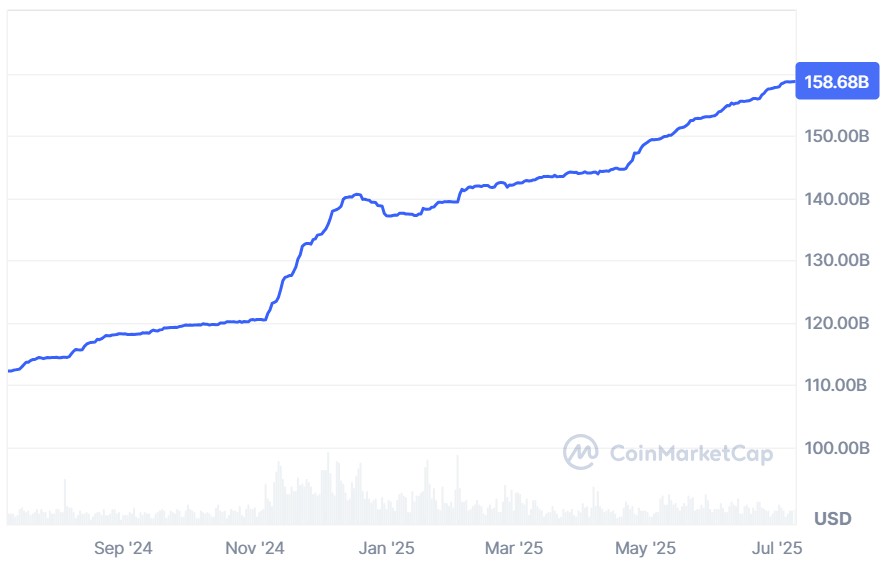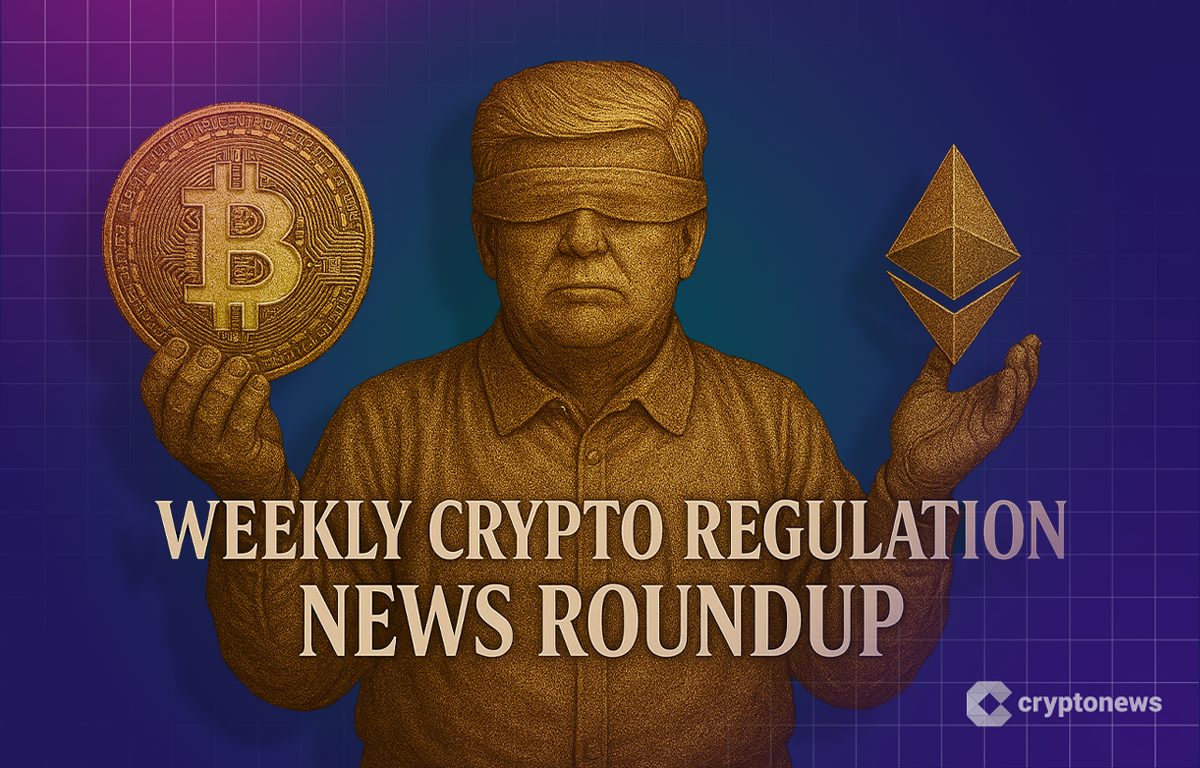USDT Prices Surge in Argentina as Dollar Demand Spikes
USDT prices have reportedly risen in Argentina as demand for US dollars rises in the Latin American nation.
Criptonoticias reported that the price of USDT rose above the 1,280 peso mark on July 8. At the time of writing, that would price USDT at USD 1.02, rather than USD 1.00.
The news comes just three months after the Lemon Cash platform, one of the country’s most popular crypto exchanges, recorded an all-time high for stablecoin purchases.
The firm said that between April 14, between 10 am and 11 am, stablecoin transactions grew by more than 350% hour-on-hour.
 The USDT market cap over the past 12 months. (Source: CoinMarketCap)
The USDT market cap over the past 12 months. (Source: CoinMarketCap)
USDT: Argentina Demand Growing?
The same crypto exchange said that stablecoin buying is a growing trend in Argentina. It announced that, in February this year, combined USD-pegged coin trading volumes were 2.5 times higher than the monthly average for 2024.
Experts and media analysts in the nation have credited much of the rise to the Argentine government’s announcement on April 13 that it would lift a much-maligned cap on USD buying.
The foreign exchange restrictions were first imposed back in 2019, when Buenos Aires attempted to address ballooning inflation rates and falling domestic investment rates.
However, the newspaper La Nacion claimed that other factors are also at play.
Fears of a peso devaluation remain high. And while the government has seemingly emerged victorious in its battle with hyperinflation, trust in the peso remains low.
Dollarization Plans Still in Play?
Ahead of his election in 2023, President Javier Milei promised to scrap the Argentine peso and dollarize the country’s economy.
Media outlets also pointed to growing “uncertainty” ahead of legislative elections slated for October 26.
Criptonoticias wrote that “many savers are seeking refuge in dollar-denominated assets in the face of possible changes in the government’s economic direction.”
However, experts also pointed to new Christmas bonus rules, which this year saw companies pay their employees bonuses in June.
This has led many to invest surplus funds in assets they think can store value in the medium and long term.
For many, this is the US dollar. But for others, it is Bitcoin (BTC), which also remains popular in Argentina.
Many traders use USDT and other USD-pegged coins to buy and sell BTC.
However, others explained that FOMO (fear of missing out) may also be driving the dollar market.
The concept of the “dólar barato” (literally: “cheap dollar”) appears to have taken root in the Argentinian markets.
An acceleration of the agricultural sector’s liquidation process was cited as another factor.
This refers to a recurring Argentine economic phenomenon whereby farmers and exporters convert their foreign currency earnings from agricultural exports into fiat pesos. The consulting firm Ecolatina explained to La Nation:
Black Market USD Prices Also Climbing
Criptonoticias, meanwhile, explained that “dólar barato” sees savers “buy to protect themselves, which in turn increases demand and pushes the price up.”
In other words, the outlet concluded, “the rise ultimately occurs because of the trading activity of people who anticipate” a rise in USD prices.
La Nacion explained that black market dollar prices are also on the rise, climbing 3.25% from July 4 to July 7.
The rate if MEP dollar, which is used to legally dollarize savings as an emergency measure, climbed 2.4% from ARS 29.52 to ARS 1,276.44 in the same period.
Earlier this month, the USDT operator Tether announced it was exploring a joint Bitcoin mining project powered by Brazilian renewable energy sources.
You May Also Like

The future of work is AI-powered. Decentralization makes it fair | Opinion

A whale once again bet on BTC with high leverage, having previously lost more than $6 million on the contract
